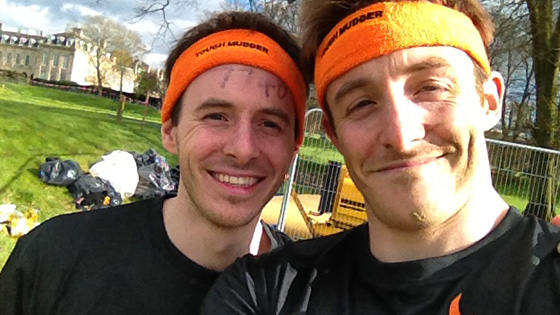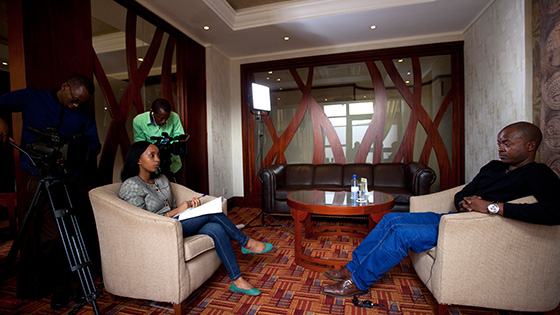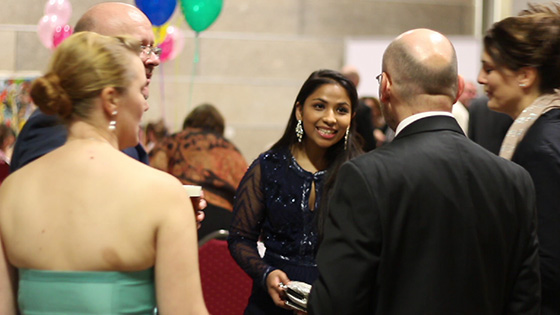2000Aegis is founded, building on the work of the UK Holocaust Centre and lessons learned in 1999 during the Kosovo crisis.
2001Creation of ‘100 Nights’: the first mobile exhibition on the history of the Rwandan genocide. Shown in London, Paris, Cape Town and Kigali.
2002Aegis and the UK Foreign Office jointly organise the first international conference on genocide prevention, bringing together policy-makers, academics, survivors and field specialists at the UK Holocaust Centre.
2002Rwanda’s Minister of Culture, and the Mayor of Kigali, Rwanda’s capital, visit the UK Holocaust Centre and ask Aegis to help create the Kigali Genocide Memorial.
2004Aegis, in partnership with Kigali City Council, opens the Kigali Genocide Memorial.
2004Aegis undertakes field research in Darfur, publishing a report and calling for referral to ICC.
2005Launch of UK’s All Party Parliamentary Group for Genocide Prevention, coordinated by Aegis. Former International Development Secretary Clare Short MP becomes first Chair.
2005Aegis takes Holocaust and genocide survivors to world capitals with Oxfam in a successful campaign for adoption of commitment to the "Responsibility to Protect" at the UN World Summit in New York.
2006Aegis successfully generates international pressure for withdrawal of Ethiopian troops sent into Sudan towards the Anuak refugee camp at Pochalla. The story never breaks in the media.
2006Aegis Students, Aegis’ youth arm, is launched. The first Aegis Students society is established at Oxford University.
2006First global ‘Day for Darfur’. Aegis is involved in organisation for rallies in dozens of cities worldwide, calling for UN peacekeepers.
2007Aegis rescues a Darfuri asylum seeker from Khartoum after he is sent back to Sudan from the UK and tortured.
2007UN Secretary General Ban Ki Moon opens a joint Aegis-UN exhibition at the UN headquarters in New York. Titled ‘Lessons from Rwanda’, it goes on tour in the Americas, Africa and India.
2008A peace-building education programme is initiated by Aegis at the Kigali Genocide Memorial, providing structured learning for visiting school pupils.
2009Evidence of torture, secured by Aegis during an undercover investigation in Khartoum, helps to end the removal of Darfuri asylum seekers from the UK to Sudan.
2010Aegis secures changes to UK law on genocide, war crimes and crimes against humanity, ending impunity of genocide suspects in UK.
2010Aegis opens the Genocide Archive of Rwanda in partnership with the National Commission for the Fight Against Genocide (CNLG).
2010Aegis opens the Discover Rwanda Youth Hostel in Kigali and charity shops in the UK as social enterprises to support its mission.
2010Actor Clive Owen becomes Aegis’ Goodwill Ambassador.
2011Aegis publishes a widely cited economic report, ‘The Cost of Future Conflict in Sudan’, estimating renewed war could cost over US$100bn across a decade.
2012Former UN Sudan chief Dr Mukesh Kapila becomes Aegis’ Special Representative on Crimes Against Humanity and visits the Nuba Mountains, Sudan, with Aegis CEO Dr James Smith. They record first evidence of illegal cluster munitions and antipersonnel mines being used by Government of Sudan against civilians in the region.
2012Independent report on Aegis’ peace-building education programme in Rwanda shows that it is changing attitudes and behaviour, not only among participating students but within the communities from which they come.
2013Aegis Special Representative Mukesh Kapila revisits Sudan’s Nuba Mountains, Blue Nile State, and Darfur frontier. Launches memoir – ‘Against a Tide of Evil’.



























